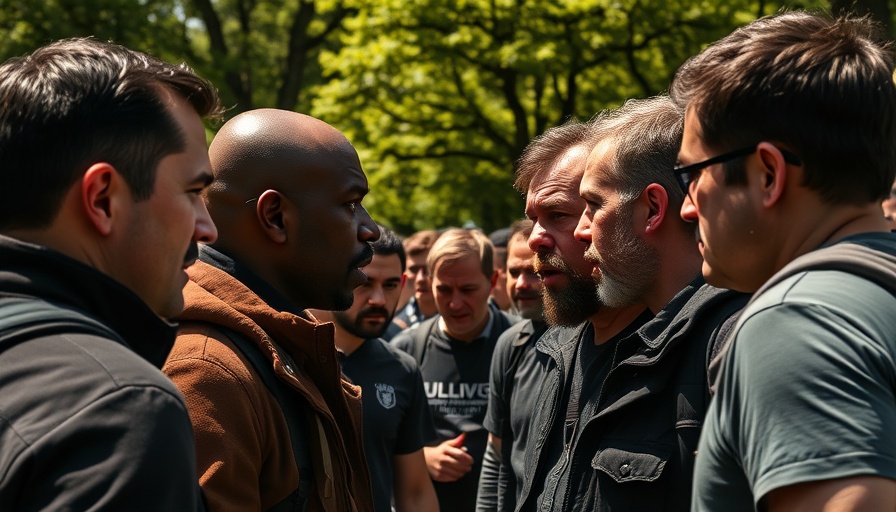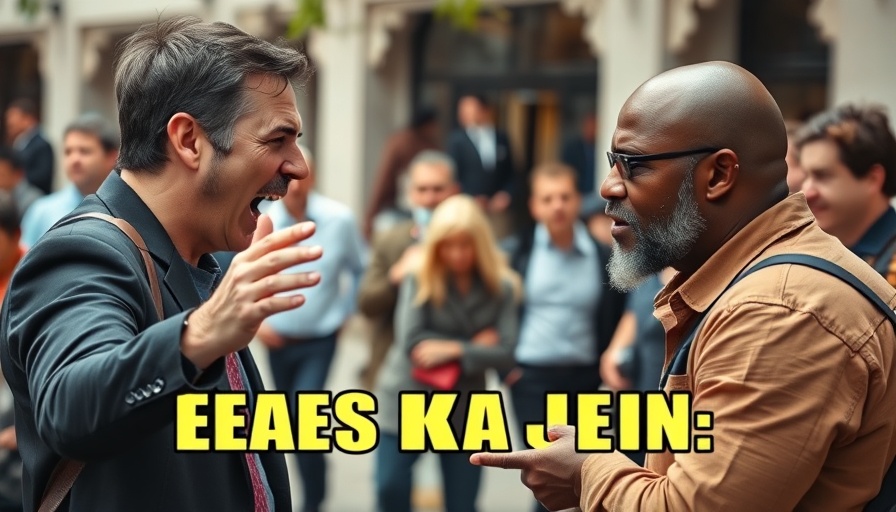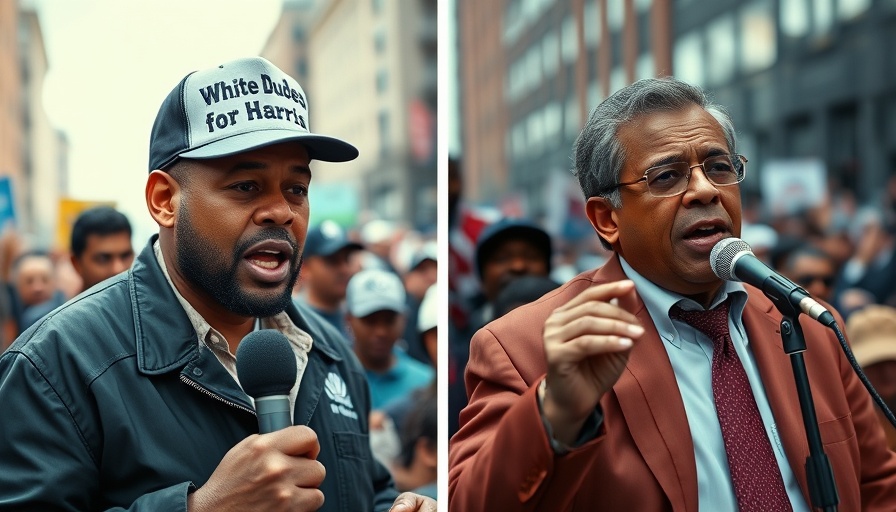
Understanding the Charges of Racism in America
The heated exchange presented in the video Officer Tatum BATTLES HEATED Antifa Activists at UC Davis exposes a significant divide in American society regarding perceptions of race and law enforcement. Officer Tatum, known for his outspoken conservative views, confronts protesters who accuse the police of systemic racism. This tension exemplifies a larger national discourse where narratives around policing, race relations, and community safety collide.
In the video 'Officer Tatum BATTLES HEATED Antifa Activists at UC Davis', the discussion dives into the charged topic of race relations and policing, prompting a deeper analysis of the perspectives involved.
Revisiting the Role of Police in Community Safety
In discussions about police and community relations, the perception of law enforcement often varies drastically among different groups. For many conservatives, police represent a critical part of public safety and maintain order in neighborhoods. The protesters’ claim that police are "pigs and bigots" veers into the broader misconceived notion that law enforcement inherently targets communities of color. Officer Tatum challenges this narrative by asking, “Can you name a single unarmed person that has been shot in your city?” His assertion highlights a call for data-driven discourse, urging protesters to move beyond emotional rhetoric to support their claims with factual evidence.
Statistics vs. Emotions: The Realities of Police Violence
Statistics show that unarmed individuals are rarely killed by police, challenging the narrative that policing is primarily a tool of oppression in minority communities. According to available data, in the entire country in recent years, the number of unarmed individuals killed by police each year amounts to less than a few dozen. This contradicts the inflated beliefs some may hold, like the notion that 90,000 deaths occur at the hands of police annually. Officer Tatum's inquiries illustrate the importance of grounding emotional responses in factual realities to foster productive dialogue.
The Discourse of Love and Law in American Society
During the dialogue, morality and the teachings of Jesus emerged as significant points of contention. Tatum argues that a message of love extends to police officers who risk their lives daily. This approach holds conservatives to a standard that blends their belief in law and order with a compassionate narrative. The video ultimately poses a crucial question: can we love our neighbors, including those who wear the badge, while still advocating for justice and change?
The Larger Context of Division in America
This confrontation is just one of many that illustrates a fractured society grappling with complex concepts of identity, authority, and morality. On one side, many citizens believe that police should be held accountable for their actions. On the other hand, as Officer Tatum points out, many conservatives feel that police are unjustly vilified, obscuring the truth about their work and sacrifices.
Visit Tatum Store to check out merchandise that aligns with these values and supports authors and activists who advocate for a unified and informed discourse, one that aims to bridge divides in American society. By understanding both perspectives, we can strive for a community that honors democracy, freedom, and the command to love our neighbors, fostering a more harmonious coexistence for all Americans. Add Row
Add Row  Add
Add 




 Add Row
Add Row  Add
Add 

Write A Comment